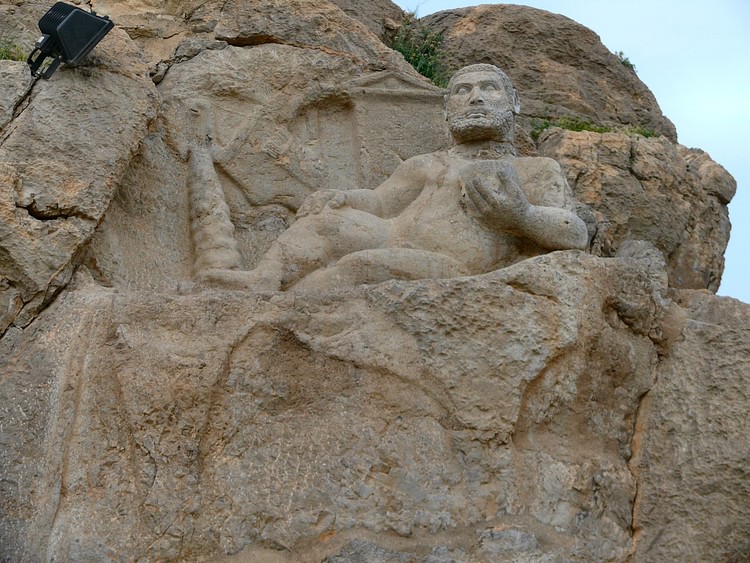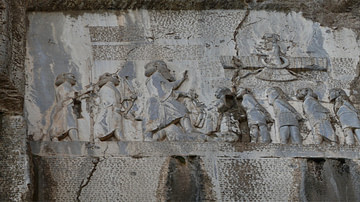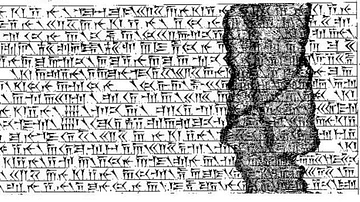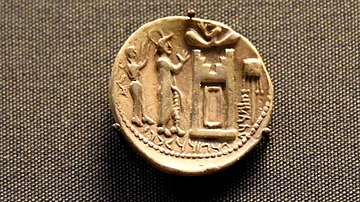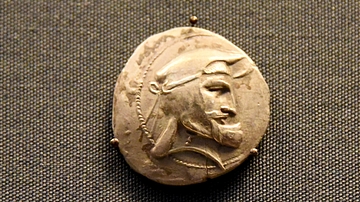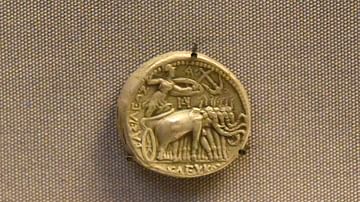Illustration
According to its Greek inscription, the rock relief representing Hercules at Behistun was carved in 148 BCE , being dedicated to a local Seleucid governor called Kleomenes. The Aramaic inscription says:
"In year 164, in the month of Panemos, Hyakinthos son of Pantauchos dedicated this statue of Herakles Kallinikos "Glorious in victory" for the safety of Kleomenes, the governor of the Upper Satrapies.”. It shows us that Persis was under control of both a Greek governor and a Persian king (known by coins), which can be linked to the idea of predecessing fratarakas rule side by side with Greek satraps.
A religious syncretism occurred in Iran soon after the beginning of the Seleucid dynasty, seeing Hercules assimilated with the old Iranian divinity of power Verethragna. In this relief, Hercules is shown in a languorous attitude, laying naked on the skin of a lion (probably the Nemean lion he killed as one of his 12 labours) , holding a bowl, under the shadow of an olive tree. His traditional wood bludgeon lay near him. If the topic is typically Greek, both the fashion and carving technique reveal the relief was carved by an Iranian artist, unfamiliar with the greek iconography. The main reason was probably because it was not a royal relief but one of a local person.
Cite This Work
APA Style
dynamosquito. (2014, October 13). Hercules and Aramaic Inscription from Behistoun. World History Encyclopedia. Retrieved from https://www.worldhistory.org/image/3143/hercules-and-aramaic-inscription-from-behistoun/
Chicago Style
dynamosquito. "Hercules and Aramaic Inscription from Behistoun." World History Encyclopedia. Last modified October 13, 2014. https://www.worldhistory.org/image/3143/hercules-and-aramaic-inscription-from-behistoun/.
MLA Style
dynamosquito. "Hercules and Aramaic Inscription from Behistoun." World History Encyclopedia. World History Encyclopedia, 13 Oct 2014. Web. 23 Oct 2024.
